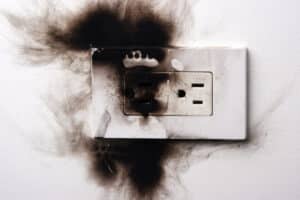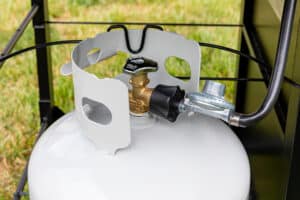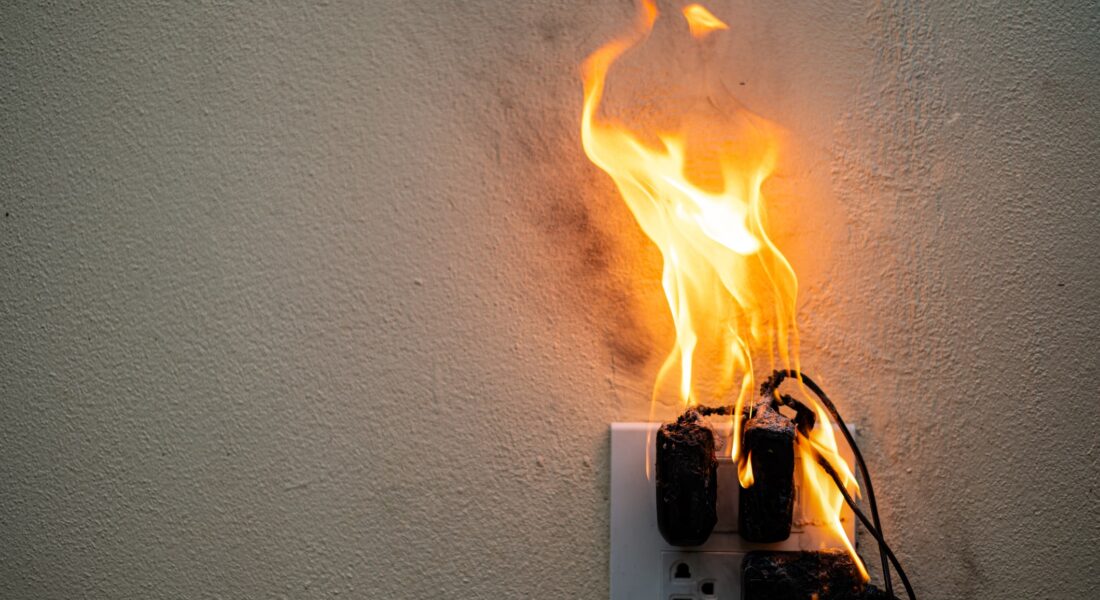Spring is the season of renewal. Cold winter fades away, the sun rises higher in the sky, and flowers begin to bloom. It’s the perfect time to spring clean your home, start new projects, and get the most out of the great outdoors. Spring also brings some fire dangers you can’t afford to ignore.
Home repair electrical shock and backyard fire risks from barbecues, firepits, and dried combustible material are the dangers of ruining an otherwise flawless day. You can guard your home and loved ones with knowledge of these dangers and safeguarding measures.
Why Spring Brings Higher Fire Risks
Following weeks of minimal work outdoors, spring is all about individuals needing to fiddle around with their lawns, tidy up their piles of trash, and get some sort of project done with machinery or tools they have not used in months. Decaying electricity appliances, worn cords, and outside fire sources can be extremely dangerous.
Spring weather is also unpredictable. It may rain, aside from dry, breezy days when fires will spread more easily. A small grill, tool, or fire pit blaze has a way of running out of control easily.
Electrical Fire Hazards in Spring
Electric fires are more likely to happen with people using defective cords, overloading power points, or using appliances that are in poor condition. Spring cleaning for outdoor activities translates to higher usage of electric appliances, thereby higher chances of accidents if not careful.
Some of the common electrical fire causes during spring season:
- Using defective extension cords with broken wires.
- Overloading power points or power strips.
- Plugging on wet surfaces.
- Plugging defective lights outside.
- From gardening tools left in damp sheds or garages.
Spring Electrical Safety Tips
Electric fires are avoidable, and it all starts with check-out and good practices.

- Check all cords and plugs prior to use. Dispose of them immediately if you see cracks, frayed wire, or burning.
- Use extension cords designed for outdoors on whatever you do outside. Extension cords for indoor use are not weather- or water-resistant.
- Keep the wires away from wet sources like pools, sprinklers, or wet soil.
- Don’t overload the outlets with several devices. Heavy loads should be plugged into the wall outlets directly.
- Inspect outdoor lights for loose wires or burnt-out bulbs prior to turning it on.
- Get your wiring checked by an electrician if you notice flickering lights, blown breakers, or burning smells.
If you have electric power equipment, don’t leave them plugged in once you’re finished using them and store them in a dry, secure space.
Outdoor Spring Fire Hazards
As the outdoor weather starts to get warmer, more folks grill on the patio, have firepits lit, and burn leaves and grass clippings. While these things are fun, they also come with more danger of fires.
Common outdoor fire hazards:
- Dry leaves and branches piled near the house.
- Grills that are set too close to furniture, walls, or fences.
- Left behind campfires or fire pits.
- Burnt yard trash without cover.
- Sparks from machines or equipment falling on dry grass.
Outdoor Fire Safety Tips
You don’t have to take the risk of a fire and still be able to enjoy the great outdoors with these precautions:
- Remove dry leaves and rubbish from your yard, gutters, and roof. These are at risk of burning.
- Position fire pits and grills at least 10 feet from wooden decks or wood structures.
- Never leave fires alone. Always have them attended at all times.
- Cover fire pits with a spark screen to trap embers.
- Check local laws prior to burning yard debris. Never burn during windy conditions.
- Store gasoline and flammable liquids in approved containers away from direct sunlight and heat.
Spring Grilling Safety
Grilling is one of the greatest things about warm weather, but grills are also one of the top sources of outdoor fires.
Safe grilling practices:
- Pre-drain grease and fat from grill surfaces prior to each use.
- Have a bucket of sand, water, or fire extinguisher readily available.
- Never grill indoors or in an enclosed area.
- When charcoal grills are used, only use charcoal starter fluid and never add more once the fire has been started.
- Let grill cool before covering or moving.
Fire Pit and Outdoor Heater Safety
Outdoor fire pits and heaters add warmth to spring evenings, but use extra caution.
- Place fire pits on nonflammable surfaces like rock, brick, or gravel.
- Keep pets and children at least 3 feet away.
- Burn only seasoned, dry wood to reduce sparks.
- Do not use flammable liquids to start the fire.
- Fully extinguish when leaving or arriving.
Seasonal Fire Safety Maintenance
Spring is a great time to make your way room by room through your home from floor to ceiling for safety. Inside and out.

Electrical maintenance checklist:
- Check and replace smoke alarm batteries as needed.
- Replace worn cords and plugs.
- Check outdoor outlets for water damage.
- Check extension cords for outdoor use rating.
Outdoor maintenance checklist:
- Rake yard and gutters clear of dry leaves and limbs.
- Cut tree branches back away from electrical wires.
- Inspect barbecue grills and fire pits before use.
- Store matches and lighters out of the reach of children.
What to Do If There’s a Fire
Fires do occur even when safety precautions are taken. If you notice fire or smoke:
- Evacuate everyone immediately.
- Emergency responders must be notified immediately.
- Attempt to only put out small, confined fires using a fire extinguisher.
- Never attempt to go back into a burning building to attempt to save valuables.
Make Fire Safety a Spring Habit
Spring is renewal season but at no expense to safety. Inspecting electrical cords, ensuring outdoor spaces are tidy spaces, and not taking risks around fire sources are part of the measures for enjoying the season harmoniously.
Fire safety is not a job for once but a way of life. Add safety inspections to your spring cleaning list. Teach your household how to stay safe, and prepare numbers in case of an emergency.
This small effort that you are going to put in right now will save your home, your properties, and even lives in the long run.




